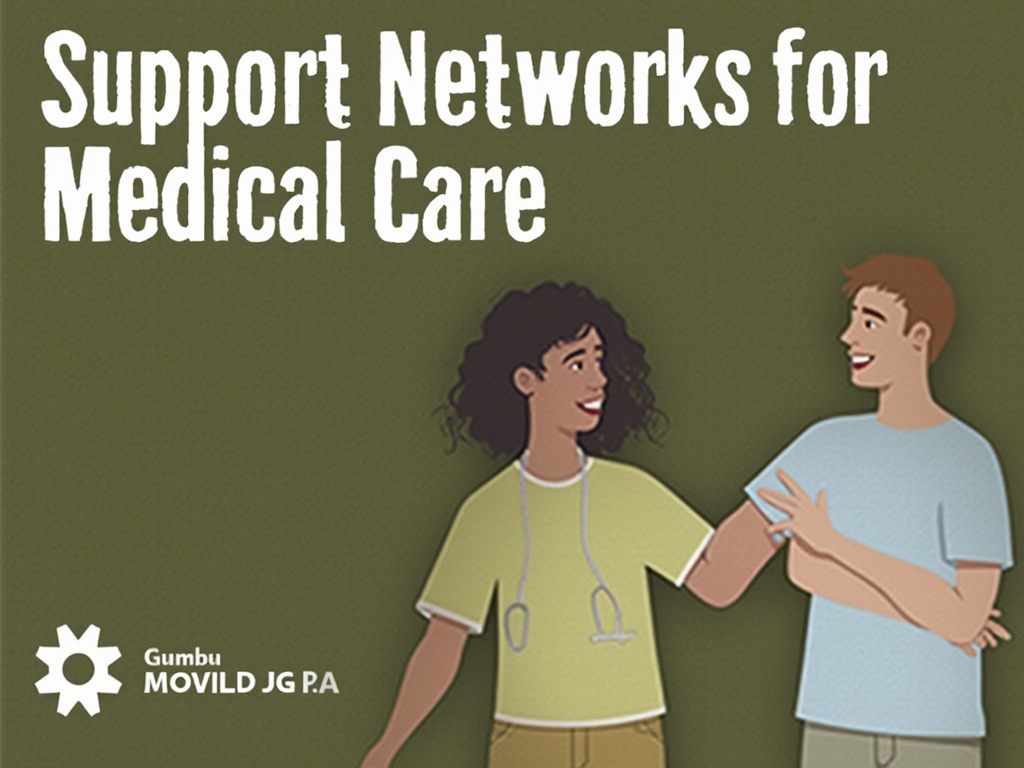Family support plays a vital role in neuropathy management, where emotional assistance and coordinated care directly improve patient outcomes and quality of life. Studies show that 73% of patients experience lower life satisfaction, highlighting the essential role family members play in medication oversight, emotional care, and daily support activities.
Key Takeaways:
- A structured support system involving family members cuts down mental and physical strain on patients and caregivers
- Direct communication and shared tasks for medical visits, meal preparation, and transportation lead to better care results
- Taking regular breaks and accessing mental health support prevents caregiver exhaustion
- Family involvement in medical appointments and treatment tracking leads to better outcomes
- Creating a complete support network with family and community resources ensures lasting care success
Family’s Essential Role in Neuropathy Management: A Comprehensive Guide
Understanding the Impact on Families
Living with neuropathy creates ripple effects throughout the entire family unit. Research shows that 57% of low-income U.S. populations face neuropathy challenges, making family support crucial for effective management. The condition significantly affects quality of life, with 73.1% of diabetic neuropathy patients reporting reduced life satisfaction.
Building Strong Support Systems
Family members can take specific actions to support their loved ones with neuropathy:
- Schedule and attend medical appointments together
- Learn proper pain management techniques
- Create a comfortable home environment
- Monitor medication schedules
- Encourage regular exercise and healthy eating habits
- Provide emotional support during difficult days
- Stay informed about treatment options
A strong support system helps reduce the mental and physical strain on both patients and caregivers. By working together, families can create a more effective care plan that addresses both physical symptoms and emotional well-being.

Building an Effective Support Network for Daily Neuropathy Care
Creating a Food Support System
I recommend setting up meal prep schedules with family members to ensure consistent, healthy eating. A rotating system where different people handle shopping and cooking duties each week maintains reliable food access without overwhelming any single caregiver.
Managing Daily Support Needs
Clear communication with caregivers about physical limitations helps build understanding and improves care quality. Here are key strategies for organizing daily support:
- Set up a shared digital calendar for coordinating medical appointments
- Create a group chat for quick updates about medication needs
- Establish regular check-in times for emotional support
- Plan ahead for public outings by identifying accessible routes and rest spots
- Share specific symptoms and triggers with close family members
- Arrange transportation rotations between family members
This structured approach reduces stress while ensuring consistent care access and emotional backing from your support network.

Mental Health Support for Both Patients and Caregivers
Preventing Caregiver Burnout
Caring for someone with neuropathy requires significant emotional and physical energy. I encourage caregivers to recognize early signs of burnout – including exhaustion, mood changes, and sleep disruptions. Here are key strategies to maintain mental wellness:
- Schedule regular breaks during caregiving duties
- Join local support groups or online communities
- Practice daily meditation or breathing exercises
- Set boundaries between caregiving and personal time
- Maintain social connections outside of caregiving
Professional Support Integration
Visiting nurse services provide vital respite care while ensuring professional medical oversight. These services can help balance the caregiving load, allowing family members to recharge without compromising patient care. Incorporating professional support creates a sustainable care environment that benefits both the patient and their support system.
Advanced Treatment Integration with Family Support
Modern Treatment Approaches
Regenerative medicine presents new hope for neuropathy patients, with stem cell therapy leading the charge in nerve restoration. These cutting-edge treatments work alongside traditional methods to create personalized healing paths. Family members can assist by learning about treatment schedules and monitoring progress.
Support System Integration
Understanding neuropathy’s complexities helps families provide better support. Since half of small fiber neuropathy cases have no clear cause, having loved ones participate in medical appointments enhances treatment success. Here’s how family members can help:
- Learn to operate neuromodulation devices like TENS units
- Track treatment responses and side effects
- Assist with daily pain management routines
- Coordinate medical appointments and medication schedules
- Provide emotional support during treatment adjustments
I encourage families to take an active role in understanding these advanced treatments, as their involvement significantly improves patient outcomes and quality of life.
Creating Sustainable Support Systems
Building Your Support Network
A strong support network makes a significant difference in managing neuropathy symptoms and maintaining emotional well-being. Support groups, both in-person and virtual, offer valuable opportunities to connect with others facing similar challenges. These gatherings create safe spaces to share experiences, coping strategies, and daily management tips.
Here are key ways to develop your support system:
- Join local neuropathy support groups at community centers or hospitals
- Connect with online forums and social media groups focused on neuropathy
- Participate in educational workshops with family members
- Subscribe to neuropathy newsletters and educational materials
- Schedule regular check-ins with trusted friends and family
- Partner with local patient advocacy organizations
By combining these support elements, you’ll create a comprehensive network that addresses both physical and emotional aspects of neuropathy management. I encourage patients to start with one or two support channels and gradually expand their network as they feel comfortable.

Practical Strategies for Family-Based Care
Setting Daily Care Priorities
Living with neuropathy requires careful planning and support from family members. Based on research showing that 55% of gluten neuropathy patients deal with neuropathic pain, I recommend creating a structured daily routine that includes rest periods and gentle activities. Family members can help track symptoms and identify patterns that trigger discomfort.
Building Strong Communication
Clear communication forms the foundation of effective family support. Here are key strategies to strengthen family involvement in neuropathy care:
- Create a shared symptom diary to monitor changes and progress
- Schedule regular family meetings to discuss care needs
- Develop hand signals or code words for pain levels
- Plan activities together that accommodate physical limitations
- Assign specific support roles to different family members
- Set up a medication reminder system that family can help monitor

Sources:
Winsantor – Caregiver Support for Peripheral Neuropathy
DVC Stem – Latest Treatments for Neuropathy
Health and Human Services – Pain Management Best Practices
Mayo Clinic – Autonomic Neuropathy Diagnosis and Treatment
JAMA – Neuropathy Intervention
Frequently Asked Questions
What are the key ways family members can support someone with neuropathy?
Family members can support someone with neuropathy by scheduling and attending medical appointments together, learning proper pain management techniques, creating a comfortable home environment, monitoring medication schedules, encouraging regular exercise and healthy eating habits, and providing emotional support. Additionally, setting up meal prep schedules, using shared digital calendars for coordinating appointments, and establishing regular check-in times for emotional support can be very helpful[1][3].
How can caregivers prevent burnout while caring for someone with neuropathy?
Caregivers can prevent burnout by scheduling regular breaks during caregiving duties, joining local support groups or online communities, practicing daily meditation or breathing exercises, setting boundaries between caregiving and personal time, and maintaining social connections outside of caregiving. Incorporating visiting nurse services can also provide vital respite care and professional medical oversight[1][3].
What role can advanced treatments like regenerative medicine play in neuropathy management, and how can family members support this?
Advanced treatments such as regenerative medicine, including stem cell therapy, offer new hope for neuropathy patients. Family members can support these treatments by learning about treatment schedules, monitoring progress, operating neuromodulation devices like TENS units, tracking treatment responses and side effects, and assisting with daily pain management routines. Their involvement significantly improves patient outcomes and quality of life[3].
How can a strong support network be built for managing neuropathy symptoms and emotional well-being?
Building a strong support network involves joining local neuropathy support groups, connecting with online forums and social media groups, participating in educational workshops, subscribing to neuropathy newsletters, and scheduling regular check-ins with trusted friends and family. Partnering with local patient advocacy organizations can also provide additional support. These actions create a comprehensive network that addresses both physical and emotional aspects of neuropathy management[3].
What practical strategies can families use to set daily care priorities and strengthen communication in neuropathy care?
Families can set daily care priorities by creating a structured daily routine that includes rest periods and gentle activities, tracking symptoms to identify patterns that trigger discomfort, and using a shared symptom diary to monitor changes and progress. Clear communication can be strengthened through regular family meetings, developing hand signals or code words for pain levels, planning activities that accommodate physical limitations, assigning specific support roles to different family members, and setting up a medication reminder system that family can help monitor[3].
People Also Ask
How Can Family Members Support Loved Ones with Neuropathy?
Family members play a crucial role in supporting loved ones with neuropathy. Here are some key ways to provide effective support:
- Attend Medical Appointments: Accompanying the patient to medical appointments helps in understanding the treatment plan and any changes in the condition. This also provides an opportunity for family members to ask questions and clarify any doubts[1].
- Create a Comfortable Home Environment: Ensuring the home is safe and comfortable can significantly reduce the physical and mental strain on the patient. This includes setting up meal prep schedules, creating a shared digital calendar for coordinating appointments, and establishing regular check-in times for emotional support[1].
- Encourage Healthy Habits: Promoting regular exercise and healthy eating habits can help manage neuropathy symptoms. Low-impact exercises like swimming and biking, along with a balanced diet, can reduce pain and improve overall well-being[5].
What Are Some Strategies to Prevent Caregiver Burnout?
Preventing caregiver burnout is essential for maintaining the mental and physical health of both the caregiver and the patient. Here are some strategies:
- Schedule Regular Breaks: Taking regular breaks during caregiving duties can help prevent exhaustion. Encourage caregivers to practice daily meditation or breathing exercises to reduce stress[1].
- Join Support Groups: Participating in local support groups or online communities can provide emotional support and a sense of community. These groups offer valuable opportunities to share experiences and coping strategies[1][5].
- Set Boundaries: Establishing clear boundaries between caregiving and personal time is crucial. Maintaining social connections outside of caregiving can also help in preventing burnout[1].
How Can a Strong Support System Improve Neuropathy Management?
A strong support system is vital for effective neuropathy management. Here’s how it can make a difference:
- Reduce Mental and Physical Strain: A supportive family environment can reduce the mental and physical strain on both patients and caregivers. By working together, families can create a more effective care plan that addresses both physical symptoms and emotional well-being[1].
- Improve Treatment Adherence: Family members can assist with daily pain management routines, track treatment responses and side effects, and coordinate medical appointments and medication schedules. This active involvement improves treatment success and patient outcomes[1].
- Enhance Emotional Support: Providing emotional support during difficult days is crucial. Regular check-ins and shared symptom diaries can help monitor changes and progress, ensuring the patient feels supported and understood[1].
What Role Can Professional Support Services Play in Neuropathy Care?
Professional support services can be instrumental in neuropathy care. Here’s how:
- Visiting Nurse Services: These services provide vital respite care while ensuring professional medical oversight. This helps balance the caregiving load, allowing family members to recharge without compromising patient care[1].
- Therapy Integration: Physical and occupational therapy can help patients improve balance, strength, and fine motor skills. These therapies, when integrated with family support, can enhance the overall care plan[5].
How Can Families Create a Structured Daily Routine for Neuropathy Care?
Creating a structured daily routine is essential for managing neuropathy effectively. Here are some tips:
- Set Daily Care Priorities: Develop a daily routine that includes rest periods and gentle activities. Family members can help track symptoms and identify patterns that trigger discomfort[1].
- Use Shared Tools: Create a shared symptom diary to monitor changes and progress. Schedule regular family meetings to discuss care needs and plan activities that accommodate physical limitations[1].
- Assign Support Roles: Assign specific support roles to different family members to ensure consistent care access and emotional backing[1].

